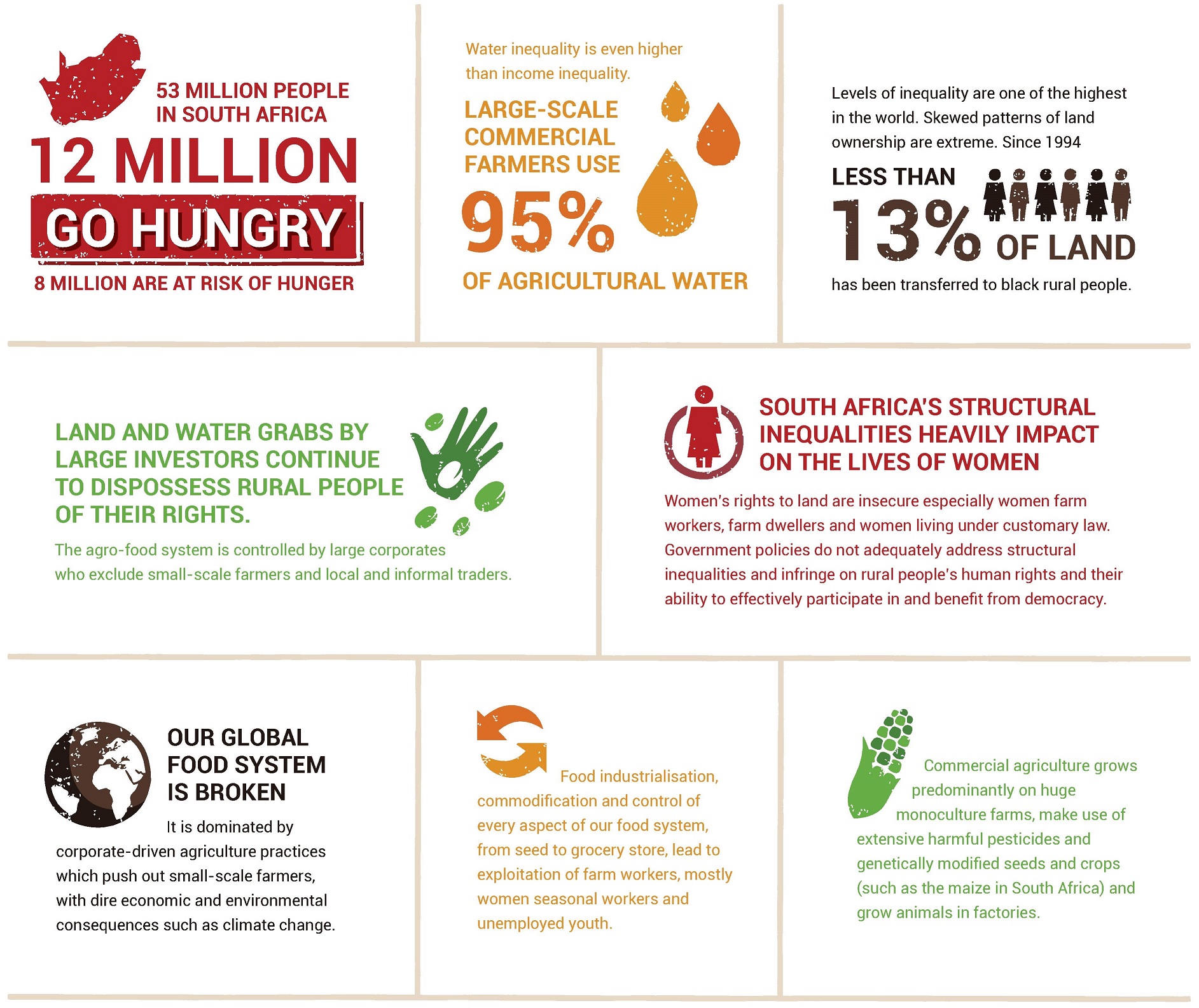

“Land is the blanket that covers our naked body” - Quote from Rev. Sammy Muller (Methodist cleric, Namaqualand)

Of the 53 million people in South Africa 12 million go hungry and another 8 million is at risk of hunger. Levels of inequality are one of the highest in the world. Skewed patterns of land ownership are extreme. Since 1994 less than 13% of land has been transferred to black rural people. Water inequality is even higher than income inequality. Large-scale commercial farmers use 95% of agricultural water. Land and water grabs by large investors continue to dispossess rural people of their rights. The agro-food system is controlled by large corporates who exclude small-scale farmers and local and informal traders.
South Africa’s structural inequalities heavily impact on the lives of women. Women’s rights to land are insecure especially women farm workers, farm dwellers and women living under customary law. Government policies do not adequately address structural inequalities and infringe on rural people’s human rights and their ability to effectively participate in and benefit from democracy.
Our global food system is broken as it is dominated by corporate-driven agriculture practices which push out small-scale farmers, with dire economic and environmental consequences such as climate change. Food industrialisation, commodification and control of every aspect of our food system, from seed to grocery store, lead to exploitation of farm workers, mostly women seasonal workers and unemployed youth. Commercial agriculture grows predominantly on huge monoculture farms, make use of extensive harmful pesticides and genetically modified seeds and crops (such as maize in South Africa) and grow animals in factories.
Contact us
